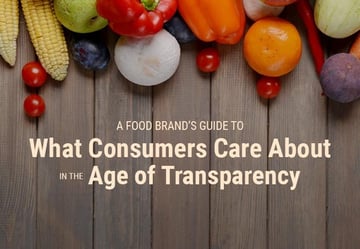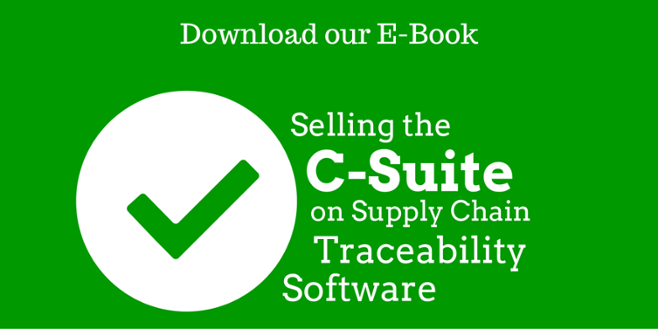As a food industry professional, we don’t have to lecture you on the importance of quality products. After all, it’s your passion for healthy, sustainable food that likely led you to your career in the first place. Every day, you strive to make sure the items your brand sells to consumers not only meet federal requirements, but also exceed your company’s own high expectations. You know your dedication to excellence means success and consumer loyalty.
But, here’s the thing: Today’s consumers want more. Sure, they hope your brand lives up to its promises. But they really want food chain transparency. And if they’re not getting it from you, they’re searching for it from other sources.
To help you build an arsenal of information for your prospects and customers, consider these top items consumers want to know.
1. Where Is My Food Grown?
Was it shipped from overseas or hauled from a farm down the road? Do you buy from small family orchards or giant factory farms? The answer to these questions can affect the way your consumers perceive your brand, as well as how much they trust your product.
According to research compiled by Sullivan Higdon & Sink FoodThink, 65 percent of Americans want to know about where their food comes from. So give them a backstory. Share the whole supply chain—from the moment a crop was planted, to the moment it was unloaded at your grocery store or prepared in your restaurant.
2. How Ethical Are Your Practices?
As society evolves, we’re becoming more empathetic. Charitable donations are increasing, shady business practices are met with public opposition and consumers care about how the goods and services they purchase affect others. Sixty-six percent of Americans are concerned with animal treatment and 57 percent are concerned about labor practices, according to FoodThink.
In other words, it’s important to speak to your customers’ conscience. By sharing the various ways your practices exceed ethical standards—and using supply chain tracing to back up your claims—you appease their concerns and reinforce their decision to purchase your products.
3. What Is In My Food?
From lifestyle choices, like vegetarianism or veganism, to allergies and diseases, like lactose intolerance and Celiac’s, people have lots of questions about the ingredients used in food processing and production. But it’s not just those with special dietary restrictions who care about what’s in their edibles.
Whether they’ve heard from their doctor, the FDA or another resource, most people know they should avoid processed sugar, preservatives and artificial flavors or coloring. The selling power of foods that are labeled “organic,” “local,” “non-GMO” and “all-natural” is undeniable. According to a study by the Free University of Brussels, Oxford, the University Institute of Lisbon and the University of Melbourne, buying these foods gives people a sense of moral satisfaction and can even affect perception of taste.
So if you’ve made an effort to source your foods from local, organic farms, dropped GMOs and avoid preservative chemicals, say so!
The fact is, consumers are not necessarily any more or less interested than previous generations—they’re simply better informed. And as customers gain more knowledge about the food they eat, they’ll continue to ask the tough questions. By exercising greater traceability, and sharing this information, you can cultivate better relationships and strengthen trust in your brand.
To provide the right information to your customers, you have to have the right data yourself. Learn more about FoodLogiQ solutions for standardizing supply chain traceability
Tag(s):
Food Industry
Other posts you might be interested in
View All Posts
Food Industry
6 min read
| September 15, 2016
Why Consumers Will Pay More for Complete Transparency
Read More
Food Industry
4 min read
| April 27, 2016
Food Industry Transparency: Why Today's Customers Care
Read More
Food Industry
4 min read
| November 7, 2019


